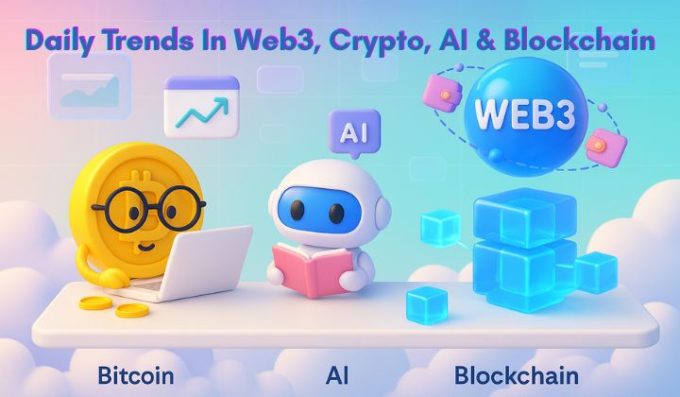In the world of finance, decentralized finance, or DeFi, has been making waves since its inception. It is a system that enables people to access financial products in a decentralized manner. In March 2023, the DeFi ecosystem continues to be advocated as an innovative solution for greater financial inclusion and democratization.
DeFi offers an alternative to traditional banking, which still needs to provide access to financial services to a significant portion of the world’s population. The low-income population who are unbanked or underbanked can now access financial services through DeFi. This can be life-changing for people excluded from the traditional financial system for various reasons.
Although DeFi faced some setbacks due to high-profile crypto platform failures in 2022, it is still considered the future of finance. The underlying technology of DeFi, blockchain, provides transparency, security, and immutability, making it a reliable option for financial transactions. DeFi is key to enabling open access, participation, and opportunity in the new digital economy for everyone. By leveraging the power of blockchain technology, DeFi can create a more equitable financial system. It offers a new way of thinking about finance that is inclusive, transparent, and accessible.
An overview of the financial industry and DeFi
The financial world is undergoing a significant transformation with the rise of blockchain and digital assets. These cutting-edge technologies enable finance to be used decentralised across borders, ushering in a new stage of expansion known as DeFi or Decentralized Financial Institutions. DeFi combines cryptography with finance and software development at its core, making it a complex topic that can only be understood with prior knowledge. However, as we explore the next generation of financial services that operate as an automated process developed on a blockchain, it becomes clear that the potential benefits are enormous. By utilizing decentralized finance, it is possible to eliminate the need for traditional banks.
Decentralized finance has been gaining momentum in fintech, offering a unique experience vastly different from traditional banking systems. This revolutionary approach opens up limitless possibilities in the mainstream financial world, providing investors and customers with unprecedented opportunities. DeFi’s decentralized and transparent nature and smart contracts allow for seamless, transparent, and trustless transactions. It also eliminates the need for intermediaries, which reduces transaction fees, and increases access to financial services for those who are underbanked or unbanked.
While the concept of DeFi is not new, it is only in recent years that it has gained traction in the financial technology space. The potential of DeFi is enormous, offering a decentralized alternative to traditional financial institutions and creating opportunities for financial inclusion and democratization. With the transparent and secure nature of DeFi, investors and customers can enjoy greater control over their financial transactions, opening up new avenues for innovation and growth.
DeFi: The Future of Finance
The financial industry is evolving rapidly, and DeFi is at the forefront of this transformation. Unlike traditional financial systems, DeFi allows greater freedom in investing and managing personal finances. In addition, with blockchain technology, DeFi provides a decentralized system that eliminates the need for intermediaries, like banks or brokers, giving users complete control over their funds.
Smart contract-based solutions in DeFi also can disrupt business-to-business relationships as they allow for tokenising real-world assets like stocks or derivatives. This can unlock the value of illiquid assets by providing security and transparency while creating access to previously unavailable markets.
Furthermore, DeFi can also help democratize finance, offering financial services to the unbanked or underbanked population with limited access to traditional banking systems. With its public ledger, corporations can detach their tradable fractionalized tokens from any single business or geographical location on a blockchain, opening up new investment opportunities.
In summary, DeFi represents a new era of financial services that operate on a decentralized system, offering more freedom, transparency, and democratization of finance. As more institutions join the blockchain ecosystem, DeFi’s potential to disrupt traditional business ways will only continue to grow.
You need to login in order to Like














